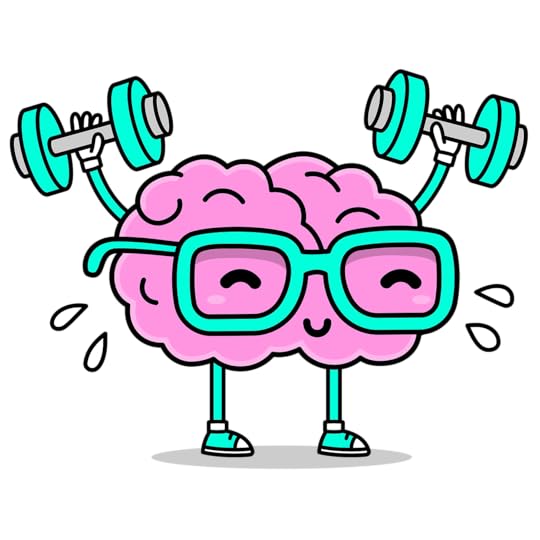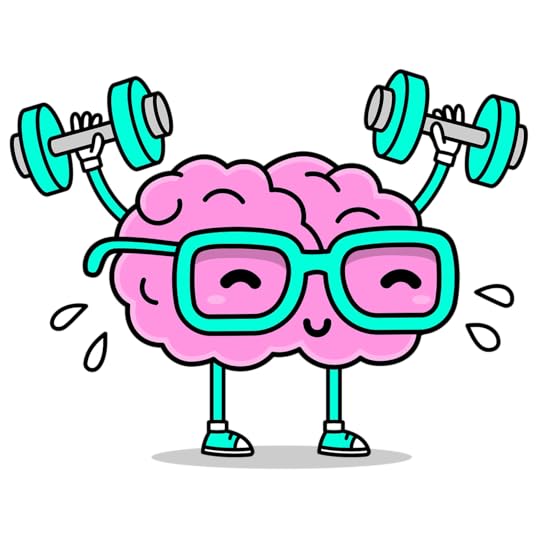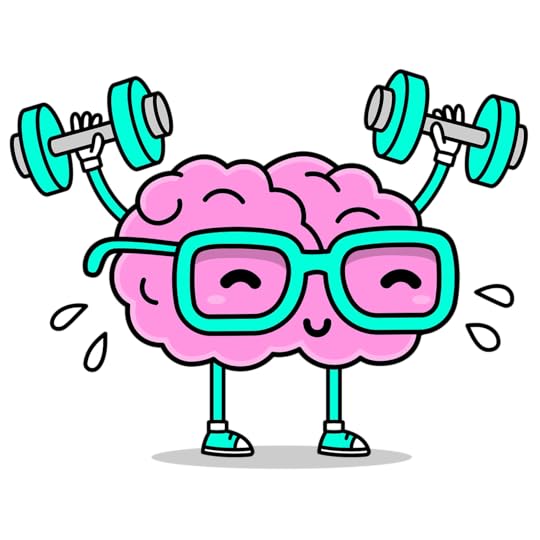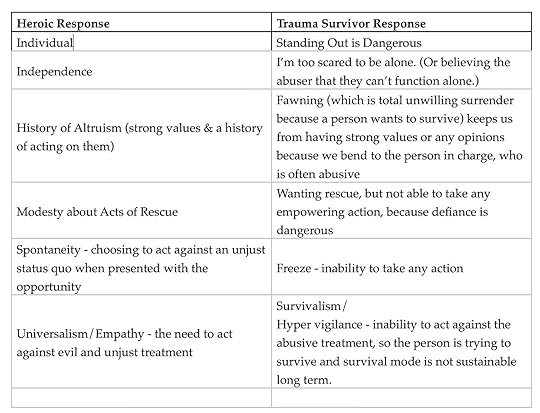A.R. Mitchell's Blog, page 8
May 23, 2024
Types of Systems

There are three types of systems…
Good System: has a task, gets it done efficiently. Resources of the system are managed well, keeping everything functioning and balanced. Talents appreciated and advanced. People in this system can advance and they often want to work well because they enjoy their roles.
Neutral System: has a task, gets the task done within reasonable amount of time and steps without overbearing the resources available or slowing the process down. People can be in this system and accomplish things, but the system is not flexible enough to accommodate overwhelm or changes.
Toxic System: may or may not have a task, but accomplishing the task sucks up resources, prevents advancement is isolating and cannot be sustained with the resources it consumes. It keeps people trapped, and can sometimes force them into behaviors that they would not normally resort to because there seems to be no other method of survival. Advancement seems only available to those at the top, and those supporting the system often suffer. There is also little to no accountability for those at the top of the system, while those supporting the system are given no room for mistakes.
Your influencing ability depends on what type of system you’re in and what resources you have available to you.
More on that next week!
Thanks for reading Chronic Writer by VintageInkSlinger! Subscribe for free to receive new posts and support my work.
May 16, 2024
Systems
Last week, I started a lesson on systems. Systems are unfortunately how the world organizes its actions. There are two dynamics here - you either change the system, or the system changes you.
Unfortunately systems are a way we group our lives for better or worse.

It starts off as babies… our ingrained learning and survival system groups everything into two boxes as new or old.
Since we’re talking about babies - everything is new.
The new thing is always dangerous. The old thing is always familiar. Note: I said familiar - not always comfortable. (Toxic behavior and abusive relationships can be incredibly comfortable if that’s your normal. That doesn’t make them right or healthy - it’s just a normalized standard of behavior.)
So babies have their two boxes:
Familiar
Dangerous
And with some training and education we learn that certain things that were labeled dangerous, weren’t really that scary and we can use them as we grow up… like stoves. Babies shouldn’t be allowed to touch hot stoves. When they get a little older you can teach them how to cook safely and it becomes fun.
But when dangerous gets labeled as normal in our developing systems… it becomes familiar… even though we know its dangerous and we don’t like what’s happening to us. This is what happens in toxic systems and abusive relationships. The dysfunctional toxic abusive normal system is so normal that our brain and body don’t want to leave it because freedom is scary. And our ‘good’ behavior in the toxic system that saves us - does not serve us when we need to move into other systems to accomplish our daily lives.
The boxes of Familiar and Dangerous don’t go away as we grow up. The systems don’t go away as we grow up - we just get to interact with more of them.
The only way established systems change is if enough people who have decided on a common goal get into the systems and work together for the change they want to see.
This means that this band of common goal co-horts has to put aside all their other issues and work together. To build that level of cooperativeness requires trust. And trust doesn’t come easy.
When we have a group of people that we have to depend on in order to change a system - that is a terrifying prospect. But heroes don’t change systems alone.
Superheroes are often seen working outside the system, with one or two people they’ve learned they can trust or that they have a relationship with. But that’s superheroes.
The real way to change a system is to get inside it and for that - you need to know who you are as a person. Effectively, you have to be so heroic that you can show up, do your job differently and be able to recognize who you can trust with what information. Its also important to know when to leave.
Essentially - you have to know you better than you know the system.
Thanks for reading Chronic Writer by VintageInkSlinger! Subscribe for free to receive new posts and support my work.
May 9, 2024
Systems
Urg… blarg… I had writer goals. I had hoped to be chatting about the individual stories that society brings on us by now… but… nope. Ok. I’ve had my tiny tantrum, and hopefully you’re not too disappointed.
The steps I talked about last week, about moving from trauma to hero… That’s the process that you go through to change yourself.
Unfortunately all the changes we make to ourselves, can’t change established systems.
So I’m gonna have to crack into systems.
Let’s go.

A system is an established culture or set of rules, steps or circumstances that need to be worked within in order to navigate life. Our jobs are often systems. We have to go through a set of actions to get where we need to be in order to complete our daily tasks.
Our families function (or dysfunction) in systems which are patterns of behavior, just like professional systems (school, work, government, etc.). These systems are so ingrained we don’t notice them.
For instance… food supply…
We run out of something, we go to a grocery store. We rarely think about how whatever we’re buying got to the grocery store… at least we didn’t think about that until we all ran out of toilet paper in 2020.
And then we all had to learn about where toilet paper comes from an how to deal without it… because the system for getting it to us, was being dysfunctional.
The dysfunction or function of systems within society and family structure is based on routines and patterns of behavior. What we allow in these systems determines how much functioning we can do.
Several weeks ago I talked about bullying. By allowing bullying at a school system level, we allowed bad behavior to continue into adulthood, the workplace, relationships, and society. That’s a system of behavior. That system of behavior and attitude or story of ‘bullying is harmless. All kids face it,’ has made schools dangerous.
I was chatting with a political analyst about corruption and he said something striking. “They’re not going to give up their bad acting (bad behavior) because they’re being rewarded for it,” he told me.
“So what do we do?” I asked.
He grinned (he looks like Hannibal Smith of the A-Team) and replied, “We make their bad behavior non-profitable, and we reward the behavior we want to see.”
When we as individuals interact with the system, we have to walk through it and deal with the culture on our own and figure things out as we go along, like me at my first job at the weird camp. I was alone there. I didn’t know what was normal, or how the system was supposed to behave in order to get an outcome that was favorable to me.
Eventually I realized that working that camp’s system was hopeless and stupid. They weren’t going to change - but I could take what I wanted from the system and what I had learned and use it to change me.
There are two dynamics here - you either change the system, or the system changes you.
Thanks for reading Chronic Writer by VintageInkSlinger! Subscribe for free to receive new posts and support my work.
May 2, 2024
Heroic Reaction vs Trauma Reaction
Heroic Reaction vs Trauma Reaction

Last week I mentioned the six traits of heroes and realized that I needed another post to better explain everything.
Ok. Nechema Tec’s Heroic Responses vs. Trauma Response

So… how do we get from trauma to hero?
Challenge - the situation, belief, circumstance
Crisis - have the fear and the emotions. Do the disaster thinking.
Confronting Powerlessness - realize what you are capable of doing with the resources you have
Feel the Feels - sit with the emotions
Missing Treasure Found - find out… wow, you were right, and hold tight to what you learned.
Empowerment - hold tight to what you learned and live it in the small things until you see it pay off in a big thing - and then keep going.
I’ll demonstrate this with a real life story.
My first job was doing media tech with a small camp. The way it was run was on the tightest budget possible and hiring people who were not good at leadership decisions. They weren’t bad people, they just had so many rules that their culture had become toxic. And it wasn’t like the rules were written as moral law codes, you were just supposed to automatically and magically know them. (Challenge)
For instance: We had to all be in bed lights out by 8pm.
I had some media tech work to do, so I asked to stay up later. As in… 10pm. I was nineteen. I lived at the camp. I know how to walk in the dark. I also know how to function on less sleep and still behave like a reasonably pleasant human. (Crisis)
My boss said, “You came to me too late in the day. It was disrespectful. No you can’t stay up late to finish your work. You need to finish it tomorrow.”
I had come to her at 4:30pm. She lived at the camp too.
I was furious… (Feeling the feels)
But I stayed calm and thwarted the rules by waking up at 3AM.
(Confronting the powerlessness and finding a way around it)
I got all my work done. I also learned that I couldn’t deal with that level of stupid. And I decided that despite giving the appearance of a kind person - she had no leadership skills and I didn’t care anymore. (Treasure found. For those of us who have grown up in toxic rule based cultures, apathy is often dangerous, but also liberating because we learn not give a hoot.)
The leadership’s behavior didn’t get any better through the three months that I worked there. In fact… it got worse. Which didn’t surprise me - but it did give me markers for business failure behaviors. It also gave me behavior patterns to study. So when I left that job, I realized about a decade later that I was in another business that was a sinking ship, I had a method of escape and I knew it would be ok to leave, because I wasn’t going to let it get to the level of working at the camp. (Empowerment and a life lesson, coming back to remind me when I needed most)
Now, please realize that leaving a job is not necessarily the best course of action - but sometimes you have to be a hero to yourself, before others. Because of my first job, I ended up doing a deep dive into cult behaviors and manipulation tactics. I also learned to trust my senses and pattern recognition system sooner.
Recap (and if you want: Homework)
Challenge - the situation, belief, circumstance
Crisis - have the fear and the emotions. Do the disaster thinking.
Confronting Powerlessness - realize what you are capable of doing with the resources you have
Feel the Feels - sit with the emotions
Missing Treasure Found - find out… wow, you were right, and hold tight to what you learned.
Empowerment - hold tight to what you learned and live it in the small things until you see it pay off in a big thing - and then keep going.
Thanks for reading Chronic Writer by VintageInkSlinger! Subscribe for free to receive new posts and support my work.
April 25, 2024
Heroes verses Trauma

Heroes verses Trauma
Ok. The good stuff! Finally. I’ve been wanting to do this post for a long time.
Nechema Tec was a World War II Holocaust child survivor. She grew up wondering, “Why did people help me when I put them and their families in danger?”
Then she turned this question into a career studying altruism.
Altruism is the quality that turns a bystander into a hero.
I want to bring this down to something we’ve probably all faced… bullying. It doesn’t matter the age or the location or situation… bullying is “Abuse and mistreatment of someone vulnerable by someone stronger, more powerful.”
According to Paul Coughlin, author of No More Jellyfish, Chickens, or Wimps - bullying can be prevented and stopped by the actions and interactions of the bystander.
I bring this up because the more I learn about human interactions on a global scale the more the patterns simply look like scaled up versions of a schoolyard playground. (Interesting article below: https://theprotectors.org/2019/03/26/bullying-and-survival-of-the-so-called-fittest/)
So instead of saying, “Big scary internationally threatening dictator,” - think of them as a bully on a playground.
And remember - you’re an adult. You don’t have to be afraid of the bully.
Bullying is an early childhood trauma - and it shapes children for life, so it should never be taken lightly. Bullying trains boys that in order to get what they want they have to be aggressive, which leaks over into abusive situations. Bullying trains girls that they have to accept abuse, that abuse is ok and they just need to stop being sensitive and deal… all of this normalizes domestic violence, and makes both boys and girls more vulnerable to abusive relationships, gang activity and human trafficking. (People who identify as other genders are just as vulnerable too when isolated.)
Back to Nechema Tec’s research…
Nechema Tec identified six qualities that make heroes.
Individuality - they felt unique and separate from others
Independence - comfortable with acting alone, strong self reliance, deep need to follow their personal beliefs and values (acting on the values, instead of spouting as proof of goodness)
History of Altruism - strong values and a history of acting on them, with a focus on the idea of protecting the needy
Modesty about Acts of Rescue - they view helping others as a natural thing to do. (As opposed to turning away and ignoring the issue.)
Spontaneity - when confronted with an opportunity to take action against an unjust status quo, they choose to take action
Unversalism/Empathy - the need to act against the evil and the unjust treatment
Next week we’ll contrast these things with a trauma reaction.
Thank you for reading Chronic Writer by VintageInkSlinger. This post is public so feel free to share it.
Thanks for reading Chronic Writer by VintageInkSlinger! Subscribe for free to receive new posts and support my work.
April 18, 2024
Heroes Verses Trauma

Last week I took you through what a personal belief crisis looked like in our lives (as opposed to someone who’s fictional). Today I want to move that a step further.
In stories the hero most often has deep trauma from something that happened in their past. Often this occurred in their childhood.
I want to state that its not the trauma exposure that makes a hero - but the healing from that exposure. Traumatized people who don’t heal aren’t hopeless - but they often are reacting instead of trying to restore themselves.
Heroes have to heal. They have to move from helpless to heroic.
They have move from being a victim to being empowered.
This isn’t saying that you shouldn’t say what happened. There’s a place for that. There’s a time for sharing what you’ve been through. And sharing your story should always create healing, empathy and courage for those around you.
But to use a phrase from last week, you can’t camp in the ruins. Ruins should not be your basecamp for climbing the mountains of stories that take up society.
When people climb mountains the basecamp is where they start from and return to. You want your basecamp to be a safe place for rest, healing and security.
If your emotional basecamp is the ruins of your life, you are not going to be strong enough to climb up the mountain. You are always going to be scared of what’s in front of you. And its going to look more intimidating and terrifying than the actual task of climbing and succeeding.
Its not that everything needs to be perfectly healed… but you do need enough determination to take on whatever climb is next for you.
So what makes a hero?
How do ordinary people become heroes?
More on that next week.
But here’s an old link with a sneak peak: https://chronicwriter.substack.com/p/nechema-tecs-character-traits-of
Thank you for reading Chronic Writer by VintageInkSlinger. This post is public so feel free to share it.
Thanks for reading Chronic Writer by VintageInkSlinger! Subscribe for free to receive new posts and support my work.
April 10, 2024
Personal Belief Crisis & Healing
Remember this…?

If you don’t… that’s ok too.
I did a whole series on the monomyth (The Hero's Journey from Trauma to Healing | Chronic Writer by VintageInkSlinger | Substack) and each of the steps to use it for story writing and trauma healing… Storytelling Through Trauma | Chronic Writer by VintageInkSlinger | Substack)
Last week I walked you through a fictional character’s belief crisis with my Wattpad fan fiction, The Seven Swords of Diya.
The steps were…
Recognizing an Established (but unhelpful) Normal -
For us: A belief that makes you blind, and you’re ok with walking in the dark. We are willingly choosing to stay in a bad place. Or as Mason Jaymes’ sister, Epona put it, “Choosing to camp in the ruins.”1
Challenge -
For us: How do you fight a bully who physically doesn’t exsist? Or for us dealing with ourselves and our personal beliefs and past incidents… “How do we stop fighting ourselves?”
Crisis -
For us: The realization of what we will lose if we continue to behave and tolerate our trauma based blind spot or poor thinking in our personal beliefs. It’s what’s at stake if we don’t heal.
Confronting Powerlessness -
For us: The wost part… daring to look at what happened. This can be done through fiction writing, with a protector character. Or non-fiction writing. You can also find a friend or someone you trust to process this with you. Mental health professionals are also recommended.
Feel the Feels -
For us: Again, using the resources above, safely feel the emotions involved, and possibly the reasons why the blind spot is preferred to facing what happened. Emotions live in the body, so this may physically feel awful. Fiction can give us a bit of a buffer of safety - but we still have to feel the feels. (link creating a character piece Author Voice)
Missing Treasure Found -
For us: discover what you need in order to heal.
I’m not sure how this works for everyone, but I don’t instinctively know what will heal some of my own stuff. I don’t always know how to get healing and that’s when I bring in my fictional characters. And they come running. And because they’re both powerful men who are rescuers and protectors my fictional characters often reveal what needs to happen. They are also high empathy dads who have no problem protecting children.
(For a post on creating your own protector characters See my post on Author Voice)
Empowerment -
For us: This is first the realization that change needs to happen, and then consistently making that change when we catch ourselves going back to the thought processes or camping in the ruins.
Again the four questions to ask are:
What stories are you listening to?
Who is in charge of those stories?
What do these stories teach you?
How do these stories make you feel?
Perpetual Disclaimer for this series:
I am not a counselor or a mental health professional. I am going to attempt to avoid things which will cause alarm or harm, but I can't know what will trigger each individual. If you need to speak to a mental health professional please know that there are resources available.
Your stories are amazing!
Chronic Writer
Share Chronic Writer by VintageInkSlinger
Thanks for reading Chronic Writer by VintageInkSlinger! Subscribe for free to receive new posts and support my work.
1From The Mist Walker: The Mist Walker - Chapter 31: Trouble Its also a trilogy on Amazon. (The Mist Walker Trilogy)
Arms dealer, international man of mystery Mason Jaymes has a wise, but tiny older sister who challenges him: “You have camped in the ruins of your sorrow long enough - you need an ezer kenegdo, Mason. A soul rescuer. Someone who can see the good from the evil, the traumitized from the terrorists, the redeemable from the damned.”
April 4, 2024
Personal Belief Crisis
Ok. Here’s what a fictional character crisis looks like based on my original fan fiction story The Seven Swords of Diya.

Archaeologist Indiana Jones has spent his entire career working with mystical artifacts yet he does not believe in the supernatural… despite weird unnatural things happening all the time to him on his adventures.
This is his established normal. A weird thing happens, pointing to the fact that there’s something more in the universe and he blindly ignores it.
He’s with his grown archaeologist daughter Emily at a museum when something from the supernatural threatens his family. He’s used to being the powerful one who takes action - but he can’t take action, because how do you fight a bully who physically doesn’t exist?
This is the challenge to his beliefs. And there are consequences if he doesn’t rearrange some of his thinking. It will hurt his family if his thinking doesn’t change because he won’t be able to protect them. Plus there’s that whole threat to the world scenario.
(For the fiction writers here, this is also setting the stakes.)
Indy goes into fight or flight and has a reaction. He punches an artifact. It doesn’t go well. He breaks his arm.
This is how the challenge turns into a crisis.
He’s now even more incapable of protecting his family against the threat, because even if it was physical and did exist he’s only got one arm to fight it.
Welcome to powerlessness, Dr. Jones.1
Remember the treasure hunt metaphor?
I’ll recap:
Healing is a little like finding buried treasure. It makes you feel accomplished because you found something that you lost and you can take that treasure and give it a place in your heart where before something was missing. And this empowers you to go digging again.
I talked about how to do this in my last series:
Storytelling Through Trauma | Chronic Writer by VintageInkSlinger | Substack
So in order to heal… Indy is going to have to:
Confront the thing that made him not believe in the supernatural
Deal with the feelings around that incident
Give himself what was missing
Adjust his beliefs to face this new reality - and hopefully walk away empowered and unable to go back to the belief that he held before.
This why I taught you how to write stories before getting to this series… because that’s what we’re going to do next week.
(The Monomyth or Heroes Journey series (in case you want to read it): The Hero's Journey from Trauma to Healing | Chronic Writer by VintageInkSlinger | Substack)
The Seven Swords of Diya is on Wattpad. Part 1 & Part 2
Again the four questions to ask are:
What stories are you listening to?
Who is in charge of those stories?
What do these stories teach you?
How do these stories make you feel?
Perpetual Disclaimer for this series:
I am not a counselor or a mental health professional. I am going to attempt to avoid things which will cause alarm or harm, but I can't know what will trigger each individual. If you need to speak to a mental health professional please know that there are resources available.
Your stories are amazing!
Chronic Writer
Share Chronic Writer by VintageInkSlinger
Thanks for reading Chronic Writer by VintageInkSlinger! Subscribe for free to receive new posts and support my work.
1If you’ve seen the original Indiana Jones trilogy, I want to add that while Indy was not in charge of what the artifacts did or the situations he was in, he knew what to do. He took action. He had the methods and skills to escape the situations. Here he’s facing the supernatural directly - it’s not an artifact he can pocket and run or put into a museum and study to learn the science behind the mystical or not think about and move onto the next adventure. It’s a threat. The villian is in the supernatural. And it’s threatening his family. So he can either ignore a threat to his family… which is impossible for him as a protector and a man who deeply loves his family… or he can choose to believe in something he’s spent nearly 60 years ignoring.
March 28, 2024
Flipping Our Lids
When writing about people and the life journeys they go on, whether it’s fiction or nonfiction we get introduced to characters. These characters often face challenges as the story moves forward and we get to see how those challenges inform, influence and change them.
As real life humans we go through this too. We get challenged in life through people or circumstances and we have to choose how to react. Sometimes we flip our lids (get triggered), sometimes we have healed enough to respond appropriately for the situation.
(Here’s a video on what I mean by flipping our lids.)
So we have our normal lives. And we’re comfortable there… even if they’re not great because of faulty brain wiring and unhelpful beliefs.
This is the mundane. This is our normal. In storytelling or the Monomyth this is the mundane normal, our everyday.
Then we get challenged. In storytelling this is the call to adventure. The Call to Adventure And we often reject it because we’re intimidated. This is often because of our beliefs and mental wiring. It’s the adverse early childhood situations or trauma stories that keep us from advancing and achieving our dreams.
So the challenge turns into a crisis, and we seek comfort. But the comfort fails because it’s based on poor mental wiring and poor storytelling about ourselves.
Unfortunately, the when challenge turns into a crisis and our brain short circuits or shortcuts into the fight or flight zone.
This the flipping of the lid we talked about in the video above.
And we’re forced to confront not only the original challenge, but our own limiting beliefs and that experience can change the stories we tell ourselves.
There’s the ancient story of David and Goliath. The grown men who were fighting hadn’t told themselves a story of victory when they faced the giant Goliath. But a teenager who essentially had the job of pizza delivery kid (he was on a toasted cheese delivery run, tomatoes are from South America) said to the king, “I’ve faced a lion and a bear - this pompous giant is just like one of them. Lemme at him!” 1
Essentially David was telling himself good stories based on personal experience.
I’ll show you this with the Monomyth and with fiction next week.
Why spend so much time on this?
If I’ve done my job correctly, this is the format of change you’ll go through as you work on healing from your beliefs and experiences.
It will seem a little complicated but it’s the foundation of how you tell yourself better stories. And we often don’t know how to tell ourselves good stories, so it helps to have a fictional example sometimes.
If you want to read ahead, here’s an example and introduction of the Monomyth. It’s not a religious thing although it comes from mythology - it’s a storytelling format.
Again the four questions to ask are:
What stories are you listening to?
Who is in charge of those stories?
What do these stories teach you?
How do these stories make you feel?
Perpetual Disclaimer for this series:
I am not a counselor or a mental health professional. I am going to attempt to avoid things which will cause alarm or harm, but I can't know what will trigger each individual. If you need to speak to a mental health professional please know that there are resources available.
Your stories are amazing!
Chronic Writer
1(Footnote: This is a story from the Bible which has an impact on modern culture, regardless of your belief system. Its worth a read just so you get the context of the expresion, “This is a David and Goliath fight.” Bible Gateway passage: 1 Samuel 17 - New International Version or you can watch the Wisbone version. Wishbone- David and Goliath movie)
Share Chronic Writer by VintageInkSlinger
Thanks for reading Chronic Writer by VintageInkSlinger! Subscribe for free to receive new posts and support my work.
March 21, 2024
What is a Personal Belief?
What is a personal belief?

Personal beliefs are something you picked up along the way. Often it wasn’t conscious, it was based on someone’s reaction or interaction with you and the result was that based on our feelings from or about that incident a belief formed.
These beliefs are wired into our brains, often from early childhood experiences or life changing adult experiences. This is why they’re so difficult to change. It’s not just a matter of stay positive and smile until your face hurts… it’s internal biological brain and body wiring.
Most of us learned how form letters or throw a ball when we were little. Now we do those things without thinking. Our personal beliefs about ourselves are much the same way. We think these thought stories without realizing that they are affecting us.
So, if we have this faulty wiring and it’s affecting us through poor self esteem or we don’t want this belief in our life what do we do?
We have to dig. We have to discover. And then we have to examine what we find and feel the things it brings up. Then we have to give ourselves the emotional support we should have received in that moment.
This isn’t easy. It doesn’t feel good. But healing is a little like finding buried treasure. It makes you feel accomplished because you found something that you lost and you can take that treasure and give it a place in your heart where before something was missing. And this empowers you to go digging again.
I talked about how to do this in my last series Author Voice
A little off topic… but below is a video of a horse with a trauma background learning from their new owner that he won’t be punished even though he’s afraid. She’s essentially teaching him a new story. Toward the end where she speeds up the video, the jaw movement, snorts, and ear flicking are the horse processing the new information.
Again the four questions to ask are:
What stories are you listening to?
Who is in charge of those stories?
What do these stories teach you?
How do these stories make you feel?
Perpetual Disclaimer for this series:
I am not a counselor or a mental health professional. I am going to attempt to avoid things which will cause alarm or harm, but I can't know what will trigger each individual. If you need to speak to a mental health professional please know that there are resources available.
Your stories are amazing!
Chronic Writer
Share Chronic Writer by VintageInkSlinger
Thanks for reading Chronic Writer by VintageInkSlinger! Subscribe for free to receive new posts and support my work.



